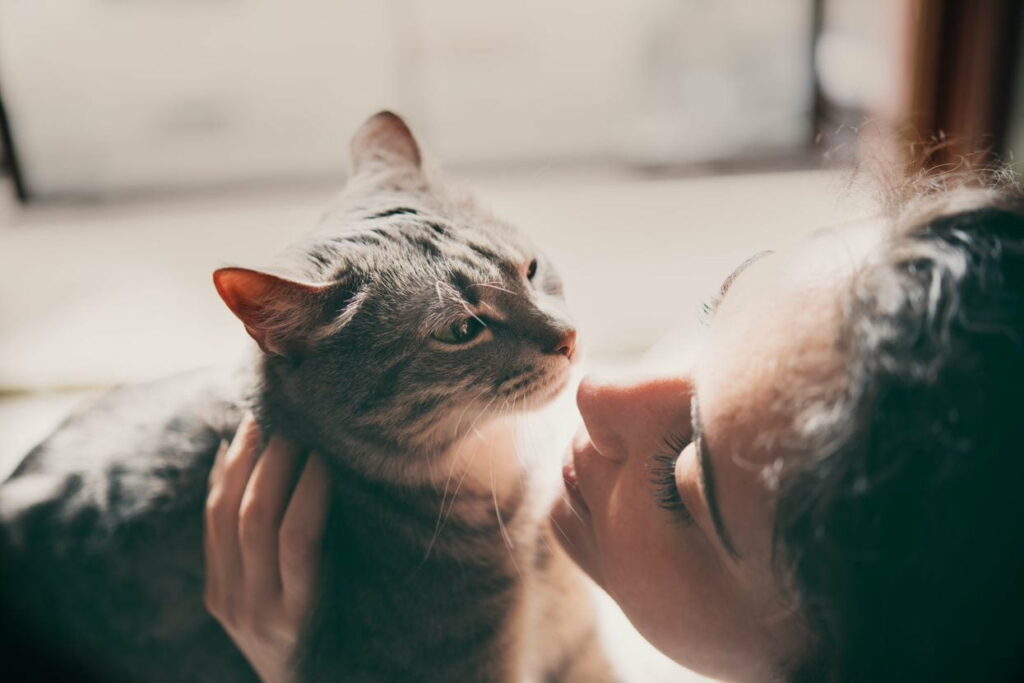As they age, cats often suffer a decline in functioning, including their cognitive functioning, which ultimately leads to changes in awareness, deficit in learning and memory, and decreased responsiveness to stimuli. Although symptoms are initial mild, it can increase their anxiety and tendency to react aggressively. It can also change their social relationships with you and with other pets in your home. Understanding the changes your cat is undergoing can help you compassionately and effectively deal with behavior problems that may arise in their senior years. In fact, clinical signs of FCD affect more than 55 percent of cats aged 11 to 15 years and more than 80 percent of cats aged 16 to 20 years.
Symptoms and Types:
Learning and Memory
- Eliminates outside the litter box
- Eliminates in sleeping areas or by eating areas
- Sometimes seems unable to recognize familiar people and pets
Confusion and Spatial Disorientation
- Gets lost in familiar locations
- Stares or fixates on objects or simply stares into space
- Wanders about aimlessly
- Gets stuck and can’t navigate around or over obstacles
Relationships and Social Behavior
- Less interested in petting, interactions, greeting people or familiar pets, etc.
- Needs constant contact, becomes overdependent and clingy
- Begins to eat unusual things like cat litter, furniture, or even chunks of drywall. This is known as “Pica.”
Activity—Decreased, Apathetic
- Explores less and responds less to things going on around her
- Grooms herself less
- Eats less
Anxiety and Increased Irritability
- Seems restless or agitated
- Vocalizes more and/or in a more urgent tone
- Behaves more irritably in general
Sleep-Wake Cycles and Reversed Day-Night Schedule
- Sleeps restlessly, wakes up during the night
- Sleeps more during the day
- Vocalizes more at night
Causes
Although the exact cause of FCD is currently unknown, genetic factors may predispose an animal to the condition.
Diagnosis
If your cat shows any of the symptoms or changes, your first step is to take them to the veterinarian to determine whether there is a specific medical cause for their behavior. They can then perform a complete physical examination to evaluate the overall health status and cognitive functions of the cat. Routine blood tests, ultrasounds, and X-rays are also employed to rule out other diseases that may lead to behavioral changes associated with FCD. If medical problems are ruled out, and if primary behavior problems unrelated to aging are ruled out, your cat’s behavior may be attributed to the effects of aging on the brain.
Treatment
Cats with FCD require life-long therapy and support. However, your help can make a world of a difference when it comes to improving your cat’s cognitive functions. Although it will not “cure” your cat, maintaining a healthy and stimulating environment will help in slowing the progression of “cognitive decline.” This typically involves keeping their daily schedule consistent. There are some medicines that may help your cat with FCD, such as selegiline hydrochloride. This drug is normally licensed to dogs, but some veterinarians and behaviorists have reported improvement in cats as well.
Acute General Treatment
- Increase the number of litter boxes available to your cat.
- Avoid exposure that is known to distress your cat
- Encourage normal locomotion
- There should be no punishment. Such actions will render the patient more anxiety.
- Mental stimulation in the early stages is important and olfactory stimulation is useful.
Chronic Treatment
- As stated, physically and mentally stimulating exercises such as massaging and range of motion exercises.
- Encourage relaxation
- If soiling begins outside of the litter box, protect your cat and increase the number of litter boxes available to your cat.
- Encourage a scheduled daily routine.
- Specialized diets rich in antioxidants decrease the rate of FCD progression and improve behavioral function.
Living and Management
Your veterinarian should evaluate your cat periodically to monitor its response to therapy and the progression symptoms. If you notice and behavioral changes in your cat, notify your veterinarian immediately.

